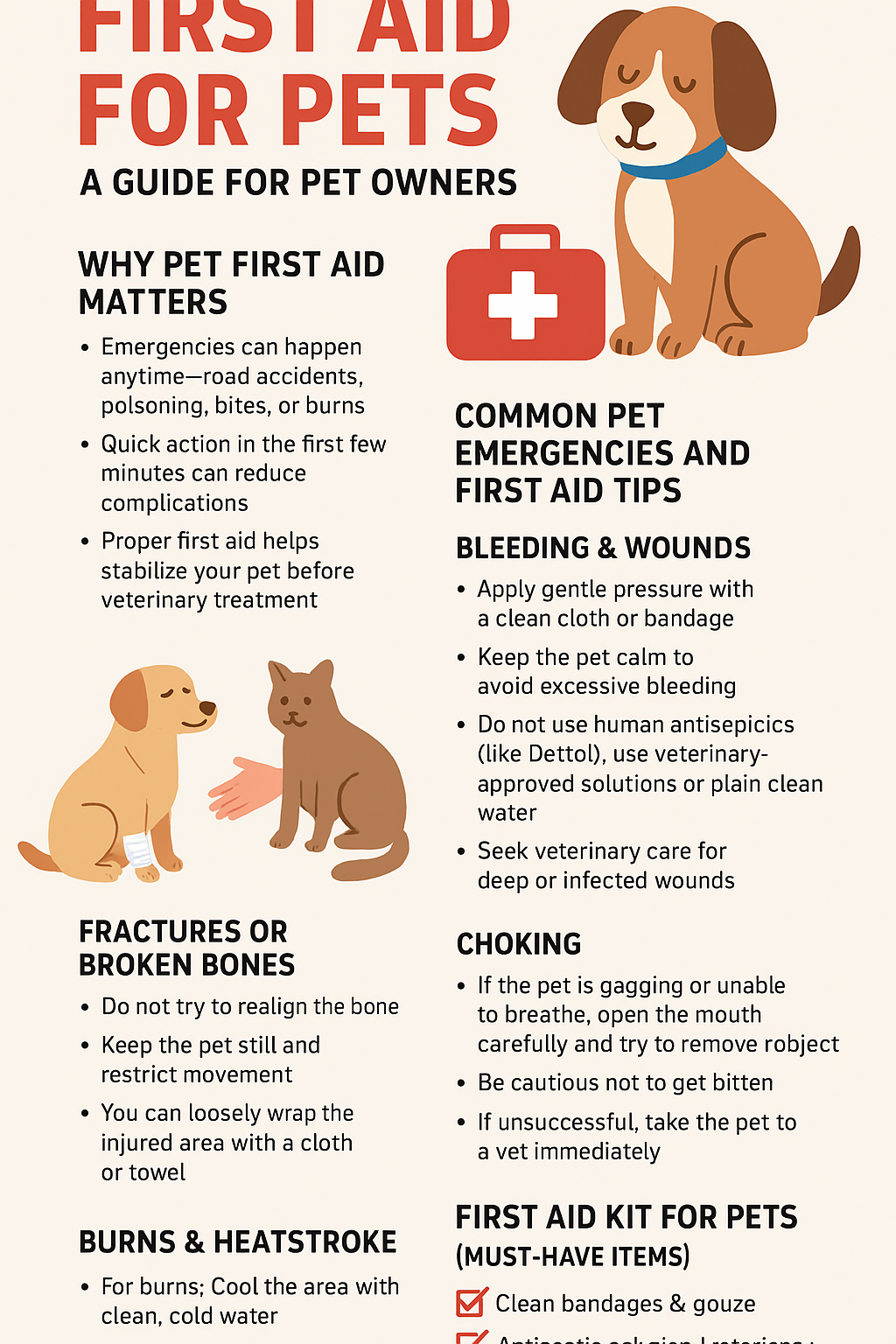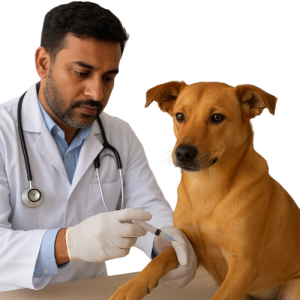Pets are part of our families, and just like humans, they may face accidents, injuries, or sudden health emergencies. While professional veterinary care is always the best solution, knowing basic first aid for pets can save your pet’s life until you reach the clinic.
Why Pet First Aid Matters
- Emergencies can happen anytime—road accidents, poisoning, bites, or burns.
- Quick action in the first few minutes can reduce complications.
- Proper first aid helps stabilize your pet before veterinary treatment.
Common Pet Emergencies and First Aid Tips
1. Bleeding & Wounds
- Apply gentle pressure with a clean cloth or bandage.
- Keep the pet calm to avoid excessive bleeding.
- Do not use human antiseptics (like Dettol); use veterinary-approved solutions or plain clean water.
- Seek veterinary care for deep or infected wounds.
2. Fractures or Broken Bones
- Do not try to realign the bone.
- Keep the pet still and restrict movement.
- You can loosely wrap the injured area with a cloth or towel.
- Transport carefully to a veterinarian.
3. Choking
- If the pet is gagging or unable to breathe, open the mouth carefully and try to remove the object.
- Be cautious not to get bitten.
- If unsuccessful, take the pet to a vet immediately.
4. Poisoning
- Common causes: chocolate, onions, rat poison, spoiled food, and chemicals.
- Do not induce vomiting unless instructed to do so by a veterinarian.
- Bring the poison container or details to the veterinarian.
5. Burns & Heatstroke
- For burns: Cool the area with clean, cold water. Do not apply ointments without veterinary advice.
- For heatstroke: Move the pet to a cool place, offer water, and wet the paws with cool (not icy) water.
First Aid Kit for Pets (Must-Have Items)
- Clean bandages & gauze
- Antiseptic solution (veterinary safe)
- Digital thermometer
- Scissors & tweezers
- Cotton balls and wipes
- Oral syringe for fluids/medication
- Emergency vet contact numbers
Veterinary Expert Advice
“Pet first aid is only the first step, not the final treatment. Never rely on home remedies alone. After giving basic care, bring your pet to the clinic immediately for a complete check-up.” – Dr. Abdul Khaliq, Baig Veterinary Clinic




